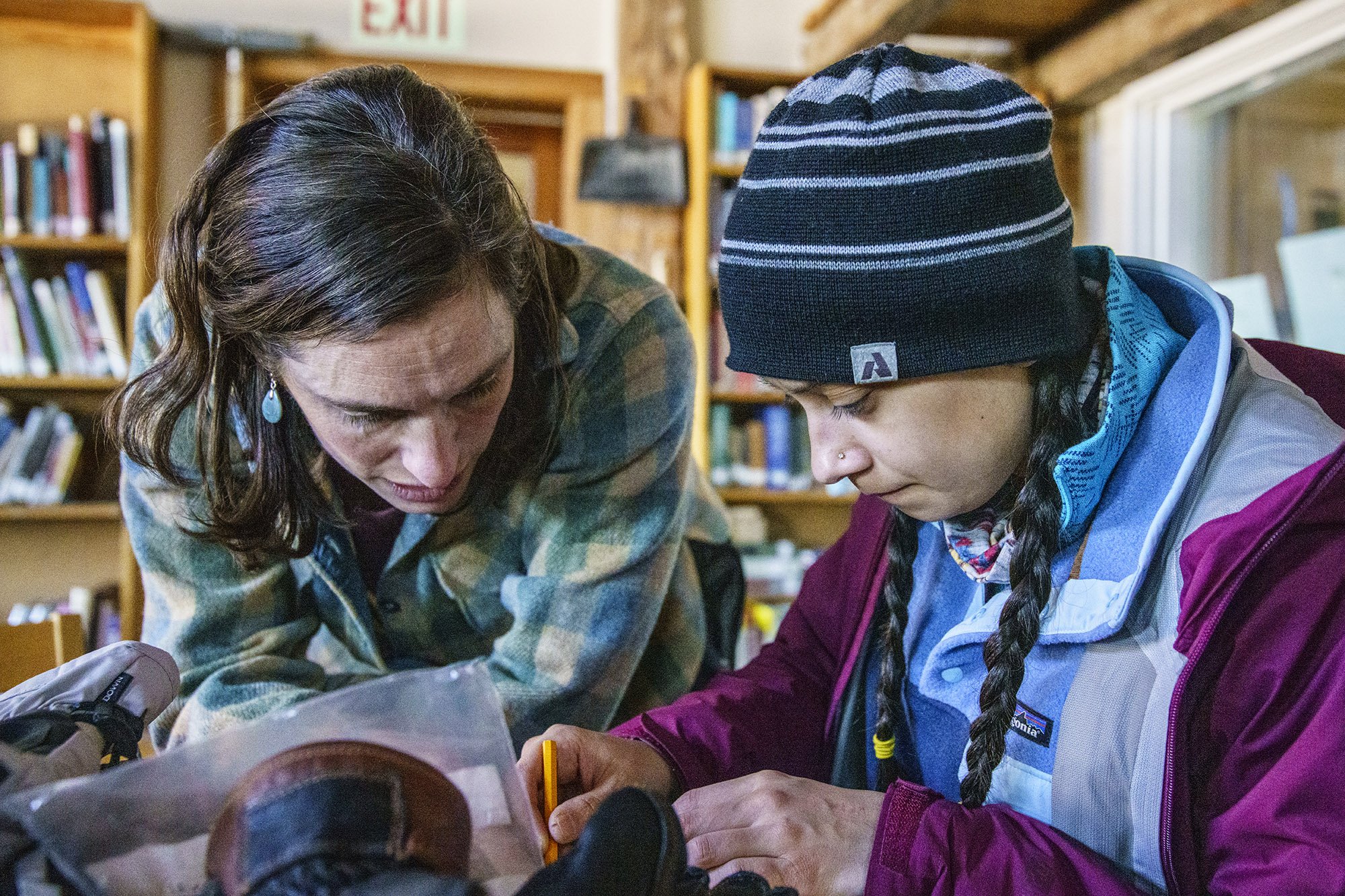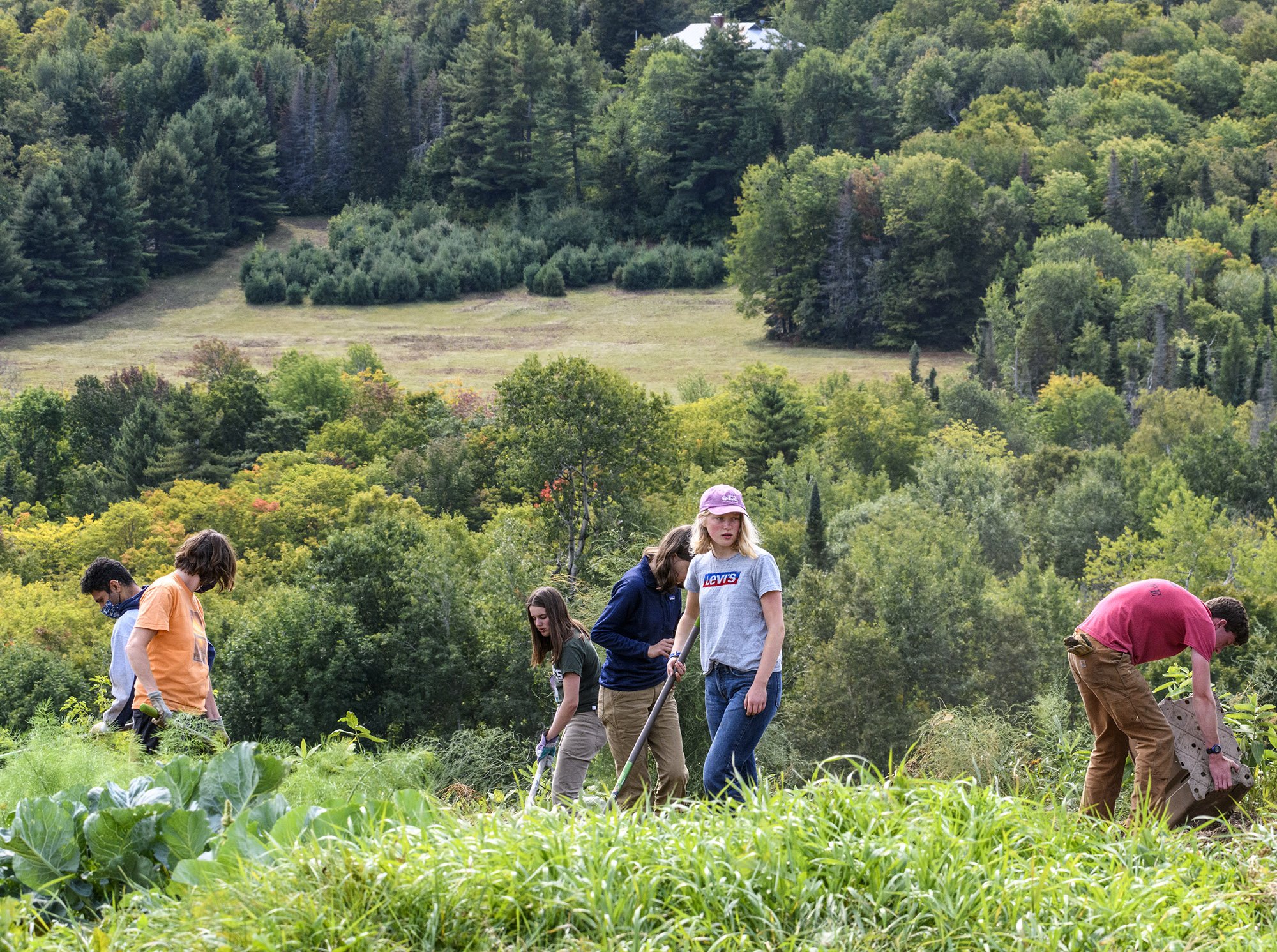
Student Support
In addition to having two dorm faculty and an assigned advisor, students also have access to a number of other supports on campus.
The Mountain School offers affinity groups, a school counselor, a learning specialist, and a school nurse.
The Student Support Team (composed of the school counselor, assistant director, and school nurse) coordinates closely with the Director and faculty to help meet the needs of each student.
Advising
While at the Mountain School, every student has a faculty member as an advisor who meets with them once a week in small group settings and for an additional one-on-one conversation. Advisors make sure student needs are being met and that students are receiving the support they need. Advisors help with a variety of things including time management, stress management, addressing conflicts and/or challenges, and academics.
The advisor also serves as the liaison for parents/guardians and is their primary point of contact for any questions. Two weeks into the semester, all families receive a message from students’ advisors with an invitation to check-in on their student’s adjustment to campus. At the mid-term, families receive another message, during which midterm grades may be discussed. At the end of the semester, advisors write a letter for each student which is sent to both families and the home school, along with a transcript. On Opening Day, Closing Day, and days of departures for breaks, there is usually time for families who come to campus to connect with advisors.
Belonging, Equity, And Inclusion
Affinity Groups
There are three standing affinity groups led by faculty and available to students who self-identify accordingly:
BIPOC (Black, Indigenous & People of Color)
LGBTQ+ (Lesbian, Gay, Bisexual, Transgender, Queer, and others)
FLI (First-Gen & Low-Income)
Additionally, students may work with faculty to offer other affinity groups according to interest. Past semesters have had affinity groups for Dis/Ability, Children of Divorced Parents, and Jewish Students. These groups provide a space for students to connect with each other and with faculty members.
Bridge Program
The Bridge Program is a pre-orientation for students on full or significant financial aid and for those who may otherwise need additional space to adjust to the Mountain School. During the Bridge Program, students will connect with other attendees, the faculty leaders of Affinity Groups, and members of the Student Support Team.
Faculty Training
Diversity, equity, and inclusion training is part of our faculty’s professional development. In addition to having consultants and speakers work with us on specific topics, some faculty also participate in DEI trainings and conferences outside of on-campus professional development.
When incidents of bias or harassment occur between students, faculty work to lead facilitated conversations to address harm and work towards restoration. For students who use racist or harassing language, faculty work to educate them on the impact of their words. In other cases, the school maintains a process to address bias incidents.
Health, Wellness, & Learning Support
Student Support Team
The Student Support Team meets weekly to discuss topics of concern and make sure that students are connected to the resources they need for well-being.
Academic Support & Learning Accommodations
Students attending TMS can submit their sending school’s IEP/ILP/504 Plan to the Mountain School and work with our school counselor to make sure that their accommodations are in place during their semester here.
Dietary Needs
Our chefs do an amazing job of providing dishes that meet a wide variety of dietary and allergen guidelines. At every meal there are options without dairy, meat, gluten and eggs. We have supported students to find a healthy diet here at TMS, including those with nut allergies, Celiac’s disease, and diabetes.
Physical and Mental Health
Physical and mental health are essential to students’ success at the Mountain School. The Mountain School employs a full-time school counselor and a full-time nurse to support the mental and physical health needs of the students. Students can arrange individual meetings with these practitioners on campus or can coordinate off-campus care with other specialists. Reach out to our school nurse and school counselor by emailing health@mountainschool.org.
What is the process of communicating with families when students have mental health concerns or the community experiences acts of racism and harassment?
When an issue pertains to an individual student, the director, assistant director, or a delegated member of the Student Support team will contact the family directly. We try to balance transparency with privacy, e.g., naming the harm done and the ways in which the responsible party is being held accountable without naming the students involved.
For issues related to mental health, the school counselor usually communicates directly with the family in order to discuss next steps for care.


